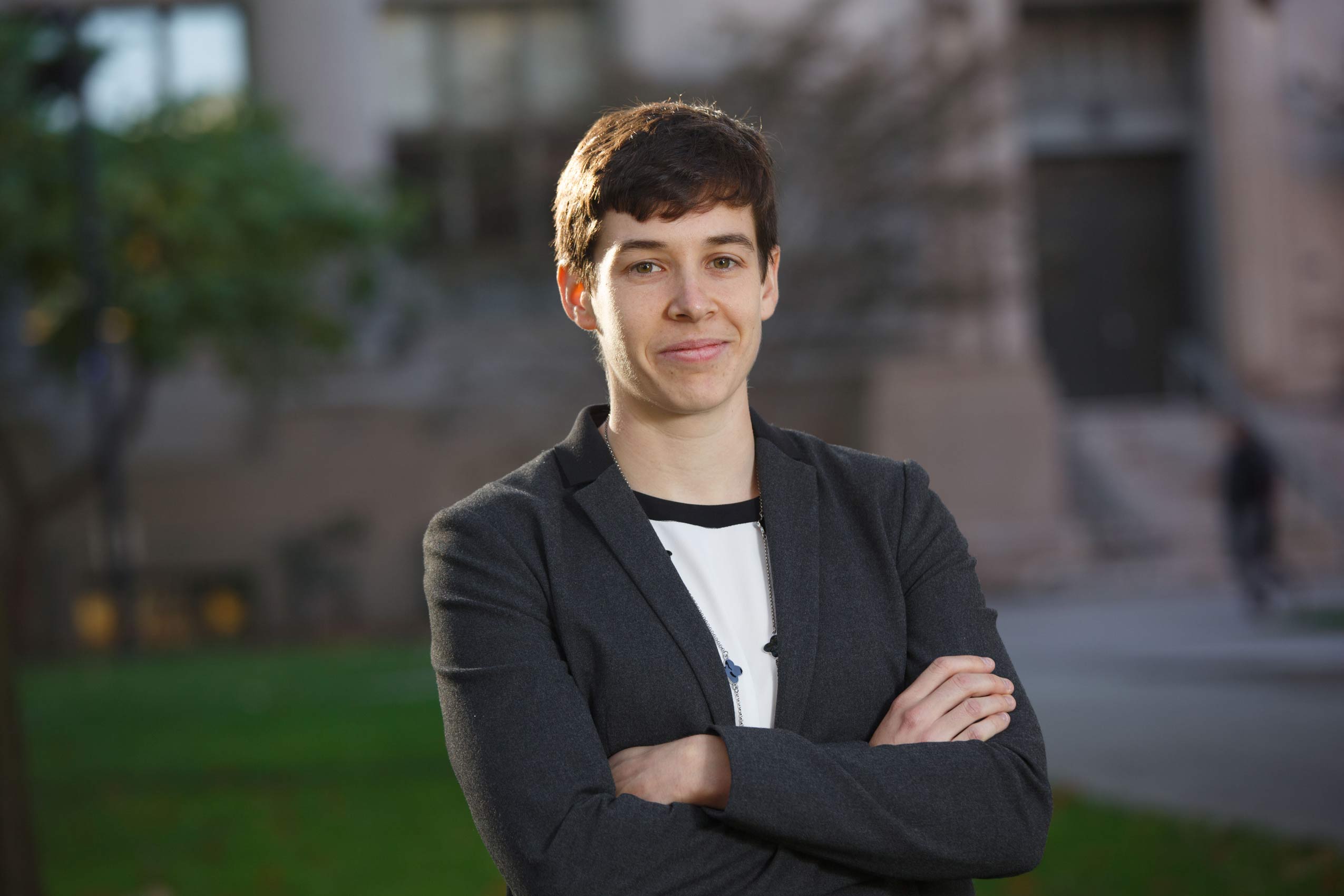Sarah Grant ’19 is one of 12 law students and early-career attorneys chosen for the 2018 Law Program of the Fellowships at Auschwitz for the Study of Professional Ethics (FASPE). Grant will participate in a two-week program in Germany and Poland this summer, which uses the conduct of lawyers and judges in Nazi-occupied Europe as a way to reflect on ethics in the legal profession today.
Now in its ninth year of operation, FASPE provides a unique historical lens to engage graduate students in professional schools as well as early-stage practitioners in five fields (business, journalism, law, medicine and seminary) in an intensive course of study focused on contemporary ethical issues in their professions.
“By educating students about the causes of the Holocaust and the power of their chosen professions, FASPE seeks to instill a sense of professional responsibility for the ethical and moral choices that the Fellows will make in their careers and in their professional relationships,” said David Goldman, FASPE’s founder and chairman.
FASPE studies the perpetrators to emphasize the essential role of professionals and to ask how and why professionals abandon their ethical guideposts. The FASPE Law program examines the role of lawyers in the Nazi state, underscoring the reality that moral codes governing the legal profession can break down or be distorted with devastating consequences. With this historical background, the Law fellows are better positioned (and more willing) to confront contemporary issues.
Currently a second-year law student at Harvard, Grant is also a captain in the Marine Corps Reserves. She graduated from the United States Naval Academy in 2011, earned a master’s degree in international relations from the University of Cambridge in 2012 and served as an intelligence officer with the U.S. Marine Corps until 2016. Following her first year at law school, Grant interned at the U.S. Department of Justice’s National Security Division. This summer, she will be at Covington & Burling in Washington, D.C.
“Moral courage is of fundamental importance in the military profession, and I have spent the last decade learning about and striving to embody the servant-leader ideal. As I transition to a new career in the law, I am equally committed to studying the ethical dimension of my future profession,” said Grant, “FASPE offers an incredible opportunity.”
Grant joins a diverse group of 64 FASPE fellows across all five programs who were chosen through a competitive process that drew applicants from across the U.S. and the world. FASPE covers all program costs, including travel, food and lodging.
In 2018, the three groups will travel from May 20 through June 1, beginning their trip in Berlin and then traveling on to Krakow and Oświęcim (the town in which Auschwitz is located), Poland. In Berlin, the program includes museum visits, meeting with a Holocaust survivor and educational workshops at the House of the Wannsee Conference, the site where state and Nazi Party agencies convened in 1942 to coordinate plans for the Nazis’ “Final Solution.” In Krakow, fellows will continue their seminars at Jagiellonian University, one of Europe’s oldest and most prestigious universities, and at Auschwitz, they will be guided by the distinguished educational staff of the Auschwitz-Birkenau State Museum.
After the program, each fellow will submit an essay focused on a contemporary ethical issue of his or her choice. Select essays are published in the annual FASPE Journal, which showcases work in all five disciplines.
